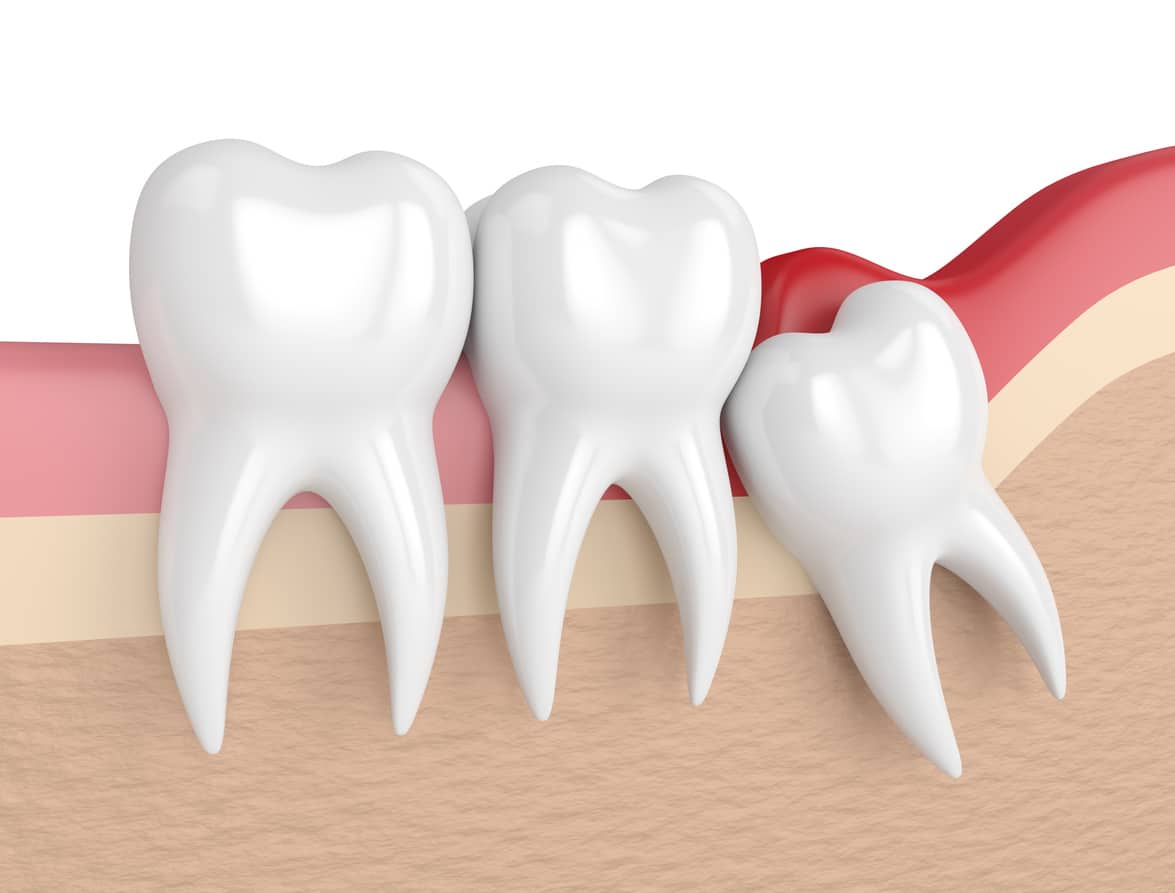How does The Eruption of Wisdom Teeth Contribute to Pain?
The eruption of wisdom teeth is a natural occurrence in many individuals, typically taking place during late adolescence or early adulthood. While this process is a normal part of dental development, it often brings along discomfort and pain, causing individuals to seek relief from dental professionals in their vicinity. Understanding the connection between wisdom tooth eruption and associated pain is crucial in addressing this common dental issue.
Anatomy of Wisdom Teeth and Eruption Process:
Wisdom teeth, also known as third molars, are the final set of molars that emerge at the back of the mouth. These teeth usually appear between the ages of 17 and 25. However, due to limited space in the jaw, they may not have enough room to emerge properly, leading to what is known as impacted wisdom teeth.

When there isn't adequate space for these teeth to erupt fully, they can become impacted against adjacent teeth or the jawbone. Partial eruption or impaction can create pockets around the tooth where bacteria can accumulate, leading to infections, inflammation, and pain.
Contributions to Wisdom Tooth Pain:
The pain associated with wisdom teeth eruption can stem from various factors:
- Impaction: Impacted wisdom teeth often cause significant pain as they push against neighboring teeth, leading to pressure, discomfort, and potential damage to nearby structures.
- Inflammation and Infection: The limited space and partial eruption create an environment where bacteria can thrive, resulting in infections like pericoronitis, characterized by swollen, painful gum tissue around the partially erupted tooth.
- Cyst Formation: In some cases, fluid-filled cysts can form around impacted wisdom teeth, causing pain and potentially damaging the surrounding bone or roots of nearby teeth.
- Misalignment and Crowding: The emergence of wisdom teeth can disrupt the alignment of existing teeth, leading to crowding, bite issues, and subsequent discomfort.
Addressing Wisdom Tooth Pain and Seeking Dental Assistance:
Individuals experiencing wisdom tooth pain often seek immediate relief. Over-the-counter pain relievers and anti-inflammatory medications can help manage the discomfort temporarily. However, it's crucial to consult with a dental professional to address the underlying cause of the pain.
Dentists Near You: Finding Local Dental Care Solutions
In the face of wisdom tooth pain, finding a trusted dental professional nearby becomes a priority. Utilizing online resources and search engines with specific keywords like "dentist near me" or "emergency dental care" can provide a list of nearby dental clinics or practitioners equipped to address wisdom tooth-related issues promptly.

When seeking a dentist, consider the following factors:
- Emergency Services: Look for dental practices that offer emergency services or accommodate urgent appointments for severe pain or infections.
- Specialization: Some dentists specialize in oral surgery or wisdom tooth extractions, which might be beneficial for complex cases.
- Reviews and Recommendations: Check online reviews and seek recommendations from friends or family to find a reputable dentist.
Conclusion:
Wisdom tooth pain is a common dental concern arising from the eruption or impaction of third molars. Understanding the causes of this pain, including impaction, infection, inflammation, and misalignment, is crucial for seeking appropriate dental care. Utilizing online resources and specific search terms like "dentist near me" can assist in finding local dental professionals capable of providing relief and addressing issues related to wisdom tooth pain promptly. Consulting with a dentist is paramount for proper evaluation, diagnosis, and treatment to alleviate discomfort and ensure optimal oral health.
Comments
Post a Comment